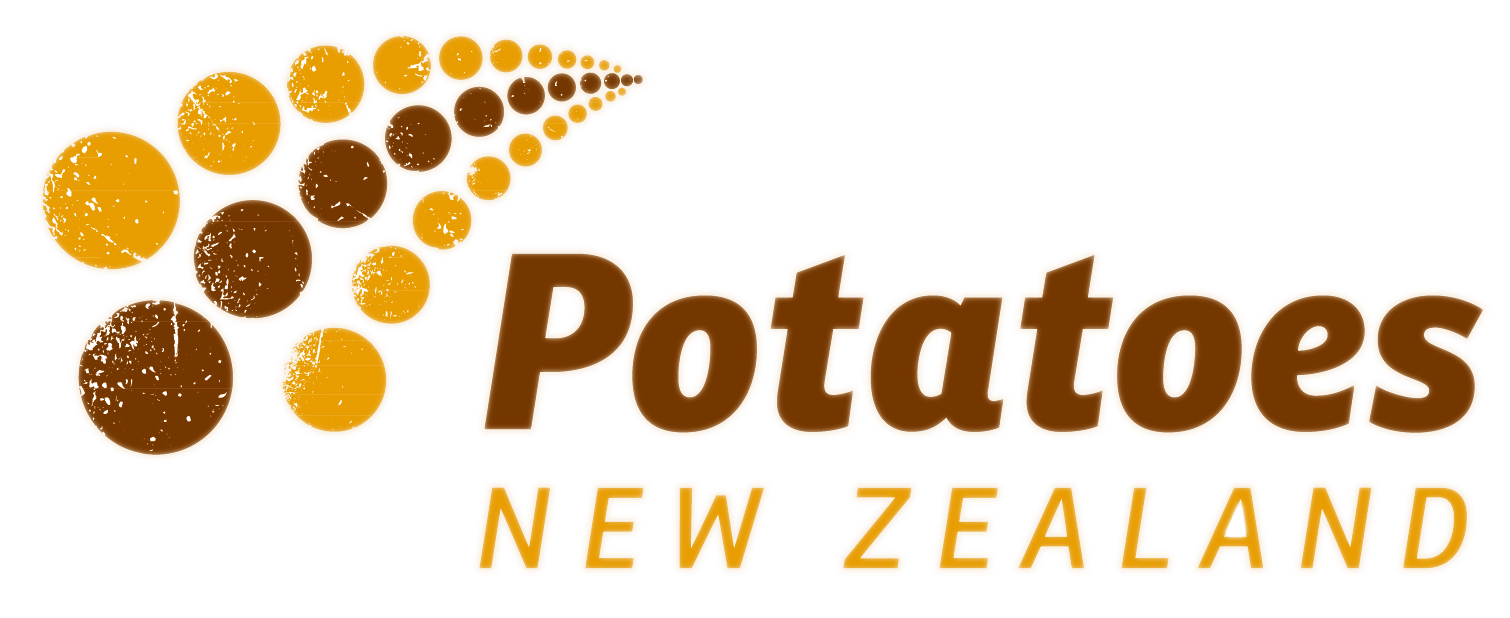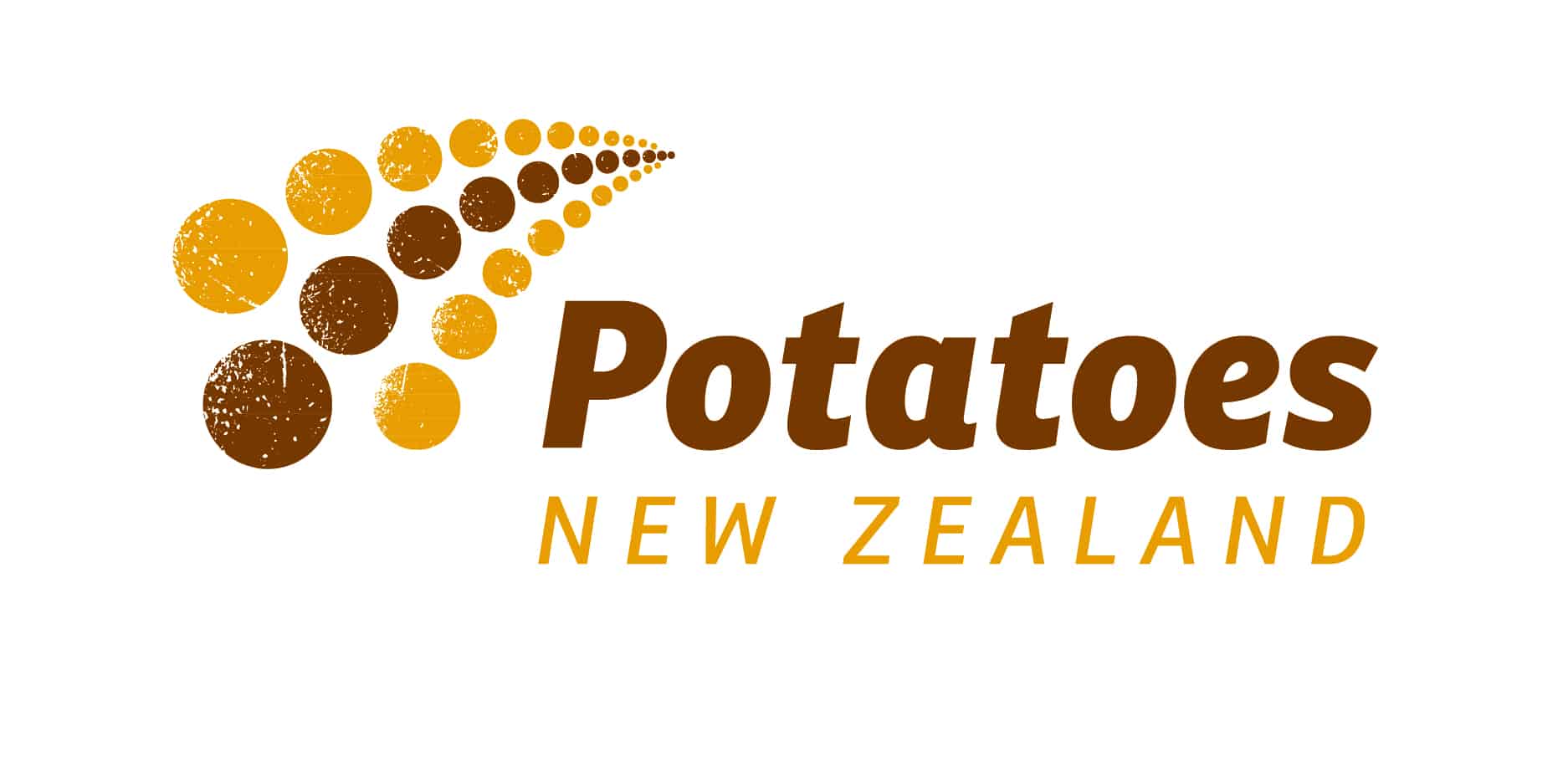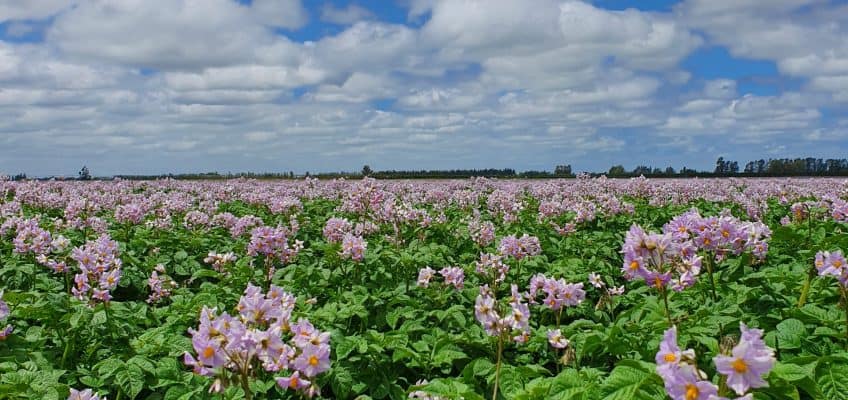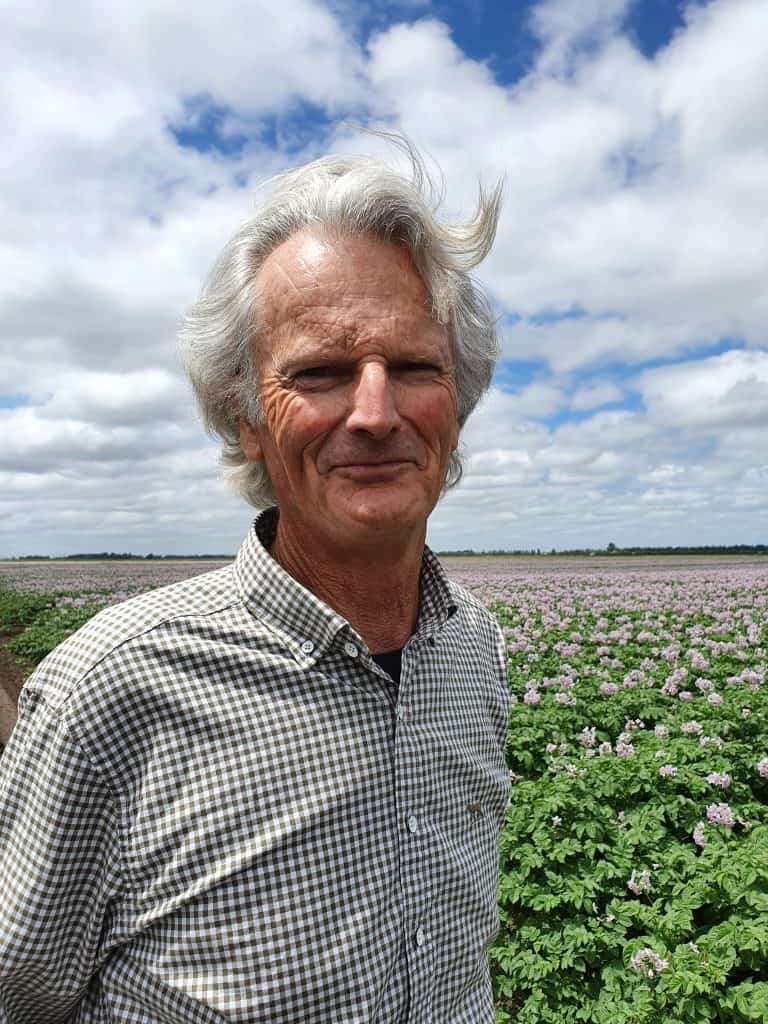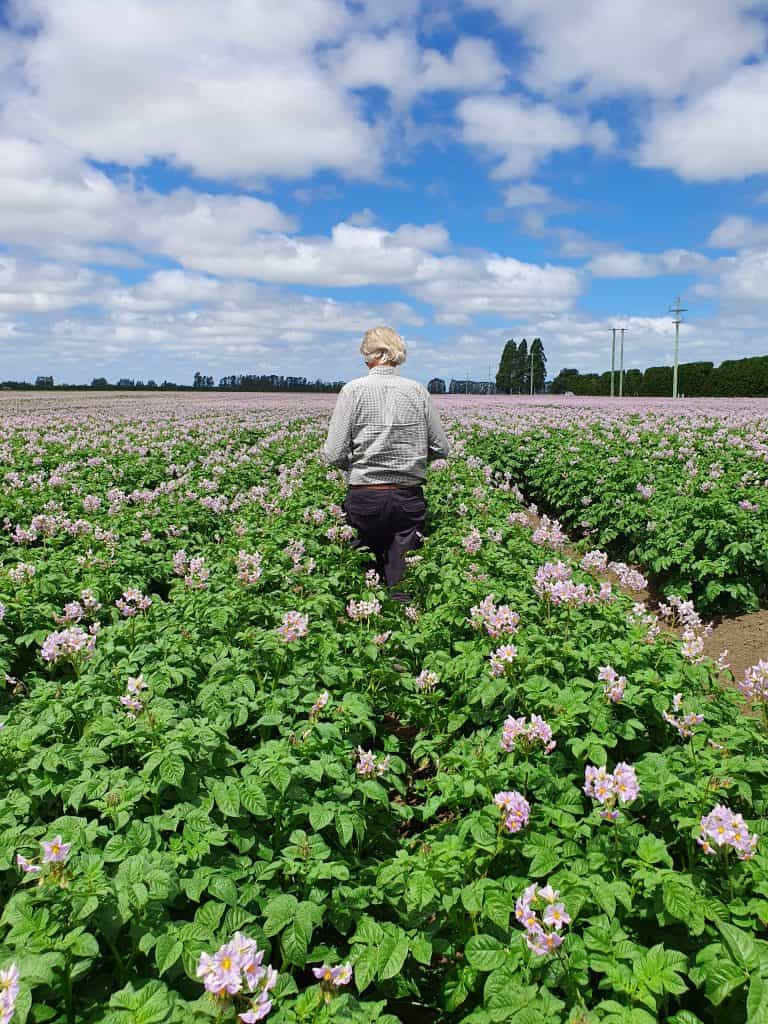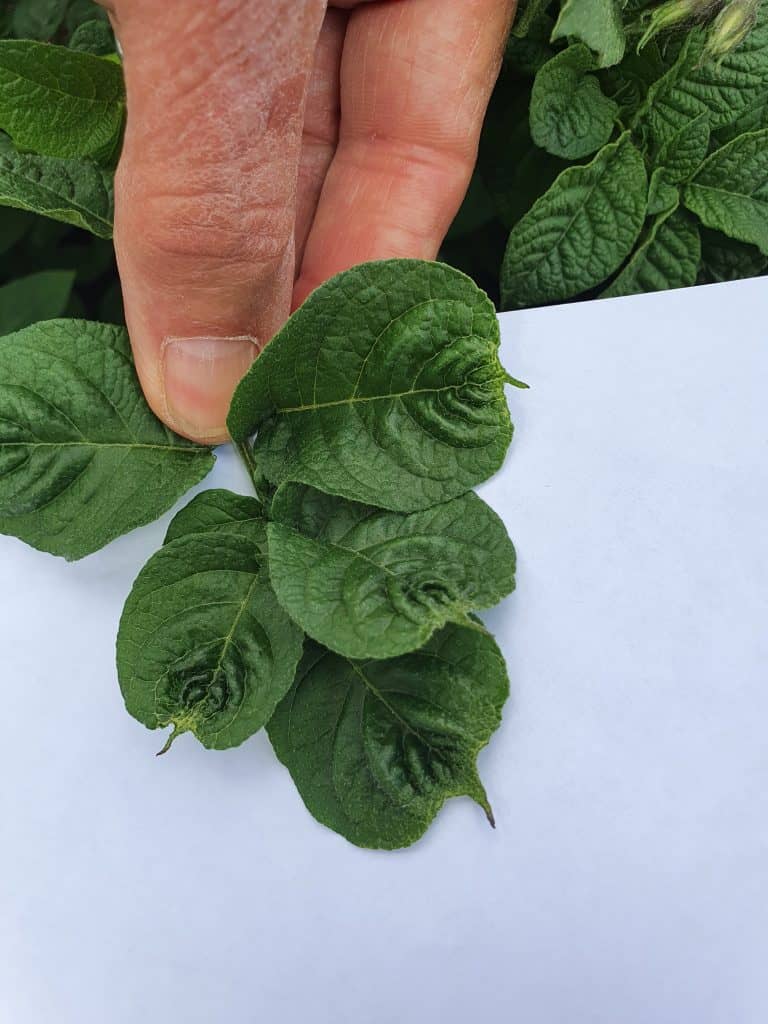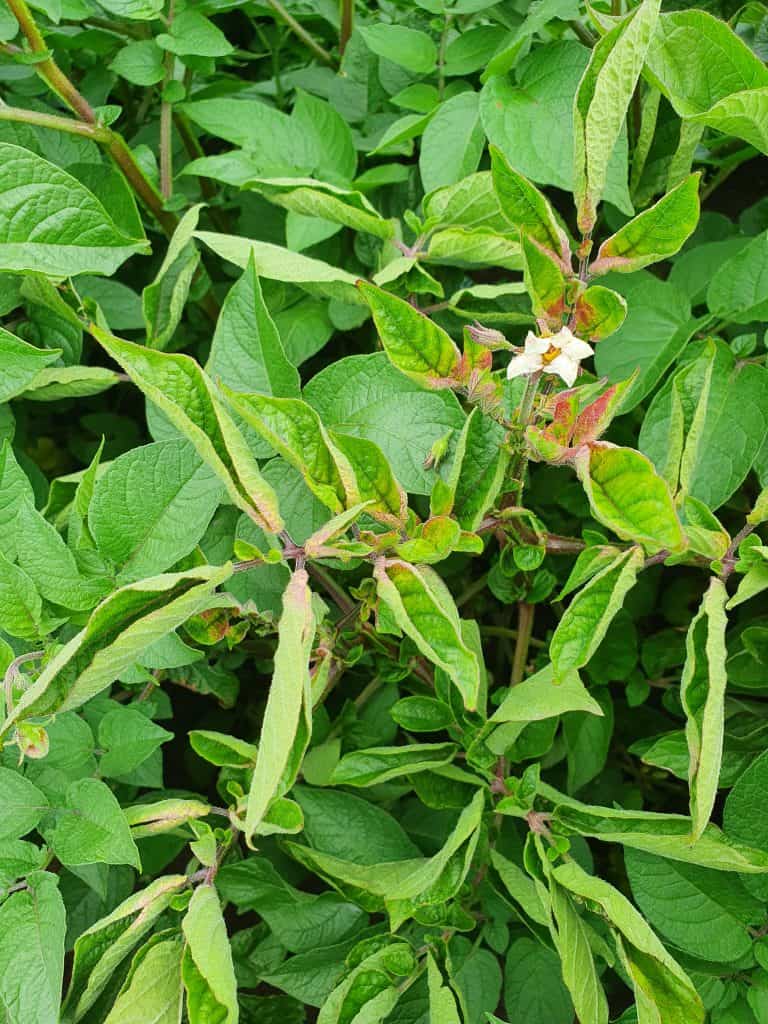By Gemma Carroll, PNZ Comms & Extension Officer.
It has been a mixed bag of weather this Spring and Summer, with a couple of rain events challenging growers in Horowhenua and Canterbury.
NZ agronomists and growers in our main growing regions had the following to say about the 2021-2022 potato season.
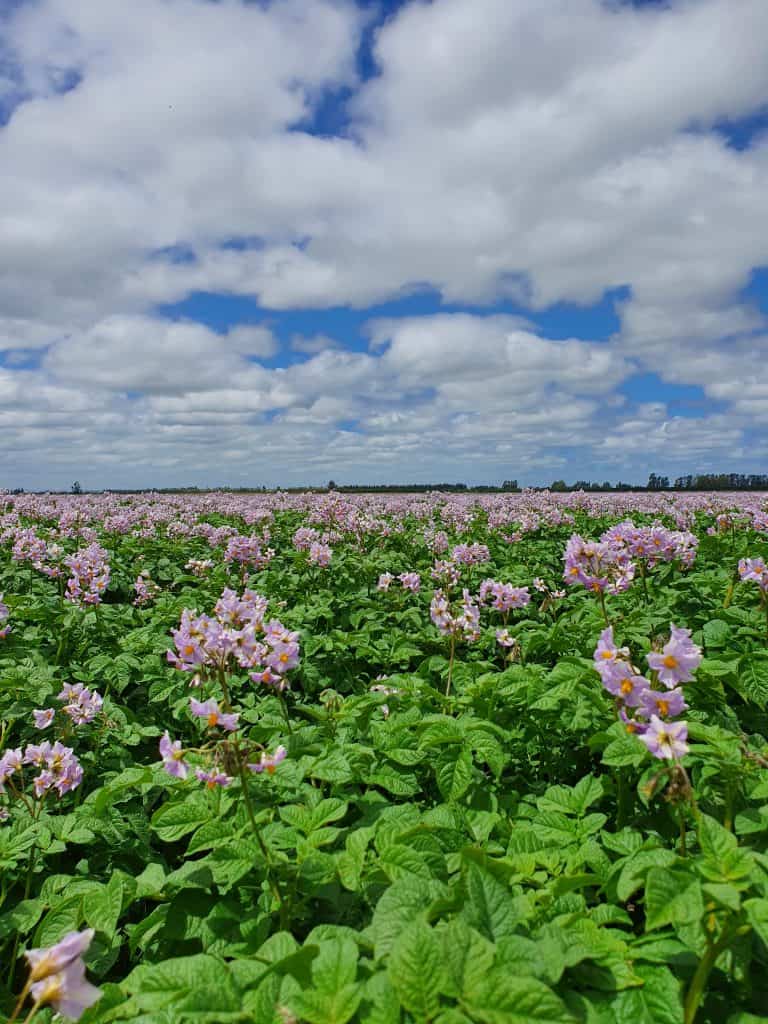
In Canterbury, Roger Blyth, Seed and Field agronomist.
Plants were ‘soft’ in the run-up to Christmas, with big canopies establishing due to low winds. Roger described it as a dull Spring with low ultra-violet levels.
A huge deluge before Christmas meant some disruption for late plantings and some crop loss. The big rain affected the normal petiole range and this has meant unrestricted canopy growth. Tuber setting is not too bad but there is variability in size. There has been no stress during tuber setting.
Canterbury is lucky to have irrigation schemes which means that the otherwise dry weather has been managed with irrigation.
Rhizoctonia, which can be both seed and soil born, is present, probably due to cooler conditions so far.
Psyllid nymphs are visible but psyllid trap numbers are not off the scale. Psyllid pressure is building however.
Powdery Scab is not much of a problem at this point.
“The Agria crops look exceptional. Innovator still has another month to go and Burbank crops needs heat and light, being a North American variety, so it will be interesting to see their progress towards mid-late March”.
In Pukekohe, agronomist Daniel Sutton from Fruitfed.
Early crops were hit by wind, but pre-Spring moisture was good. Then in late November-December the big dry has hit.
There are pockets of Potato Tuber Moth (PTM) and psyllid, numbers are variable but generally psyllid is lower and PTM a bit higher, above the 2021 average.
There’s not as much powdery scab but this is very much a paddock-by-paddock characteristic.
Early blight/alternaria is always a big pressure and with the dewy mornings, it is certainly a problem this season.
Irrigation is generally very challenging, with growers needing to constantly move equipment from paddock to paddock. The blocks here are smaller and the terrain too undulating, for pivots. Irrigation guns are a highly inefficient use of water but they’re about all the industry use here at present.
It is very dry in the Franklin and Matamata areas.
Current climatic conditions definitely increase the chances of PTM, but good harvests and getting most of the crop out of the ground in a timely manner, could mitigate those risks. The current challenge is getting enough crop out of the extremely hard, dry ground to satisfy markets.
In Manawatu, Mike Moleta, grower and PNZ board member.
December’s heavy rain event in Horowhenua, clocked up the wettest December on record in this region. Mike personally lost 30% of his potato crop. He said that if not lost, crops were certainly affected adversely by the rain and surface flooding. The most frustrating aspect of the flooding was that the Horizon council drains were not clear of weeds, so despite having plenty of pumping capacity there was nowhere for it to go.
Now the conditions have swung the other way and are almost too dry. It’s certainly been a Spring-Summer season of all extremes. Mike reckons “You just have to plan for what you can control, but you can’t eliminate all the risks”.
December’s weather also impacted on growers’ ability to manage weeds and disease because the ground was too wet to work on. Mike had to resort to spraying from the air and is still left with a weed burden and an inability to cultivate the wetter ground. Plants have also been smaller in wet ground. On higher ground the combination of wet and heat has meant fast growing spuds but they’ve not harvested yet to give a clear picture of yields. He has seen no extremes in psyllid at this stage.
PNZ has welcomed two new team members, as part of the NZ Potato Seed Certification Authority.
Cyril Hickman and son Tristan, have hit the ground running, with 2021-2022 seed potato inspections underway. When I met with Cyril in January at Methven, he commented on the very leggy plants we were seeing, almost 1/3 higher than usual. In his 30+ years as an inspector he’d not seen any quite so tall and so fast growing.
Seed inspectors look for pest, disease, fungal, viral, bacterial infections and subnormal or not-true-to type plants in the potato seed crops. The most common problems Cyril is seeing this season are liberibacter and herbicide damage.
The wet weather and dull days have made the all-visual inspections difficult this season.
PNZ the year ahead
The team remains focused on our R&D projects and we will be building on extension activities this year. This may be slightly hampered by pandemic disruption but we hope to visit growers in each of the spud regions regularly. We are in the early stages of planning for the delayed National PNZ conference which will be held in Canterbury and a PNZ Agronomy Forum to be held in the North Island.
We will not be running field walks this Summer, because the unknown disruption from the Omicron variant of Covid-19 has meant a more conservative plan. We will instead visit regions for grower insight meetings. We also start work late Summer on some videos and podcasts to extend from the Sustainable Vegetable Systems project.
We continue to be led by grower feedback and the governance from the board. Please contact us at any time on 0800 399 674.
